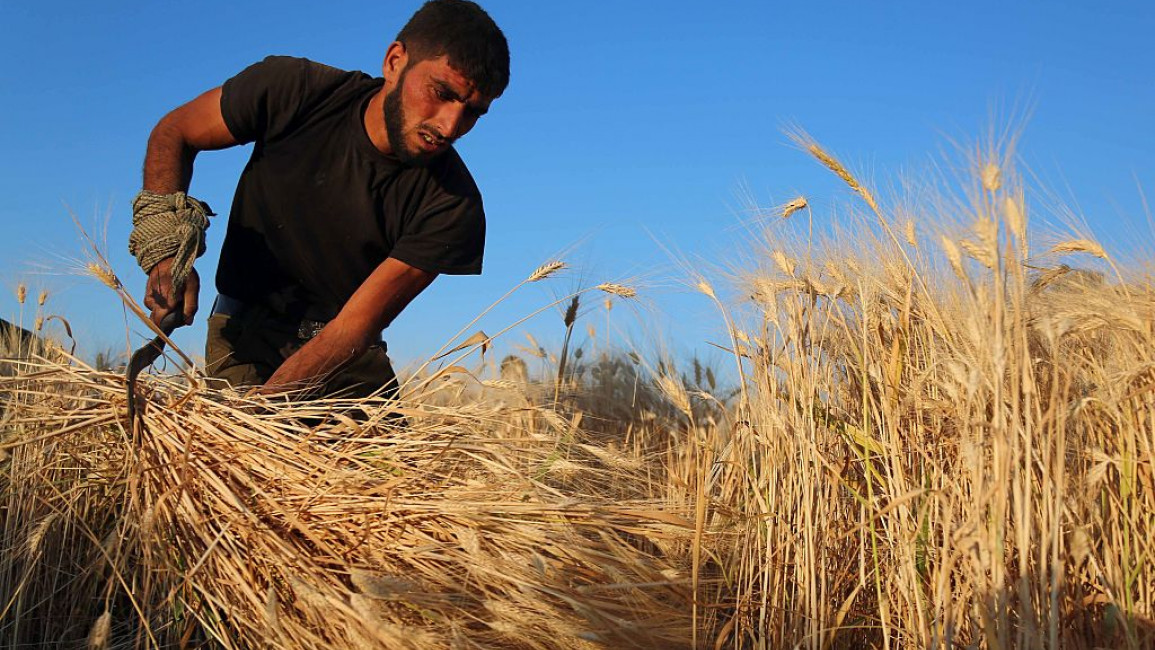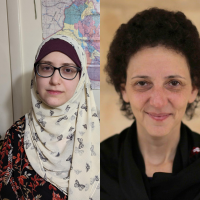
The Russian and Syrian regimes are fuelling food insecurity
More than two years after Turkey and Russia agreed to a ceasefire in northern Syria, there continues to be grave risks to civilians. Local communities report ongoing attacks from the ground and the sky, with growing reports of Russia and Syrian regime attacks destroying key farming and agricultural infrastructure in north-west Syria - the only major part of the country still under rebel control.
Up to 24,743 civilians have been allegedly killed by Russian and/or Syrian regime action in the course of Russian involvement in the conflict since 2015. This estimate is collected from local reports - from those on the ground and in Syria. During the joint military campaign, more than half of the previously opposition-controlled areas in Aleppo, Hama, and Idlib came under Syrian regime control. According to the Washington Institute for Near East Policy, this covered an area of approximately 4,000 kilometres.
After the ceasefire deal on 5 March 2020, these attacks were meant to have stopped. The final opposition-held stronghold, estimated to host approximately four million people, was meant to be safe.
Although the intensity may have slowed, there are still attacks on innocent civilians - such as the four children reported to have been killed on 4 April this year, whilst walking home from school. Our analysis at Airwars - a London-based NGO which assesses and seeks transparency on civilian harm in conflict zones - estimates that up to 337 civilians have been killed by Russia and the Syrian regime in Syria since the ceasefire.
''Despite the ceasefire agreement, life-threatening risks remain for civilians in Syria - attacks on agriculture only add to the daily stresses and worries about livelihood and survival in an ongoing warzone.''
This situation is being made worse by systematic attacks on agriculture in the region.
Recently, our team has documented a consistent pattern of agricultural workers, farms, and crops being systematically targeted by Russian or Syrian regime forces, exacerbating ongoing challenges around food security in the region.
As UNOCHA noted in their January 2022 report, “at the start of 2022 there has been an increase in airstrikes on infrastructure, including farms and water pumping stations.” Since the ceasefire we have collected at least eight separate accounts of attacks on poultry farms which also killed civilians and their animals, and damaged infrastructure and vital facilities.
One young man, Ammar Muhammad Khair Rihaniya, was injured on a poultry farm in May in a reported Russian strike on the Jabal Al-Arba’een area of Idlib. One report from local media identified that vacuum missiles were likely used during the attack - weapons with a large and inaccurate blast radius that are likely to cause significant harm.
Risks to Syrian lives and livelihoods
We have also documented farmers, herders, and labourers at risk. Most recently in June, a woman was killed after she was targeted directly by gunfire while harvesting caper bushes in the countryside of Al Bab city in Aleppo governorate.
Passers-by, children playing outside, and neighbours are also victims. In another incident, up to five civilians were killed, including a woman and three children, when Russia was reported to attack two poultry farms on the outskirts of Kafr Takharim near the Turkish-Syrian border. The strikes were reported to have damaged the farm and killed a large number of animals.
We have also seen marketplaces targeted, areas that civilians rely on for food and other necessities. In February, the Syrian regime and/or Russia were reported to have targeted a market in the centre of Afes, Idlib. Two civilians were reportedly killed, and there was widespread destruction of the facilities - closing the market for an unknown amount of time.
This is one of 204 unique incidents in our archive where Russian and/or Regime forces were locally blamed for civilian harm in an attack on a marketplace since 2015; with up to 3,051 civilians likely killed.
These sustained attacks on food sources and agricultural land means that access to food is increasingly scarce. At the same time Russia has repeatedly threatened to use the veto to affect the ability of the United Nations to continue providing aid across the Turkish border at a Security Council vote due next month. It wants all UN aid to come from regime controlled areas, allowing Russia and its allies to control or even cut off the food sources for civilians.
Ali Al Mashhadani, an activist who lives in northwest Syria, told Airwars that agricultural crops have been most affected and prices of basic goods such as chicken, meat, rice and potatoes had increased more than 100% in the last year. He believes that the targeting of food sources is one major reason for the price increase - alongside existing issues like the fluctuation of the Turkish Lira, which was introduced as currency in that part of Syria two years ago.
Despite the ceasefire agreement, life-threatening risks remain for civilians in Syria - attacks on agriculture only add to the daily stresses and worries about livelihood and survival in an ongoing warzone.
In an area where the conflict was supposed to have ended, the international community must remember that many risks to civilians remain, and must search for ways to urge states engaged in the Syrian conflict to stop targeting agricultural lands and other food resources. This must involve listening to local communities who continue to suffer the brunt of these attacks, to understand what, why, and how civilians are still being harmed.
Shihab Halep is a refugee from Aleppo who is now based in Turkey. He is the leading Arabic-language Conflict Researcher at Airwars. He monitors and researches Russian and Coalition strikes and reported civilian harm in Syria, as well as reported civilian harm from all actors in Libya.
Have questions or comments? Email us at: editorial-english@alaraby.co.uk
Opinions expressed here are the author's own, and do not necessarily reflect those of her employer, or of The New Arab and its editorial board or staff.



